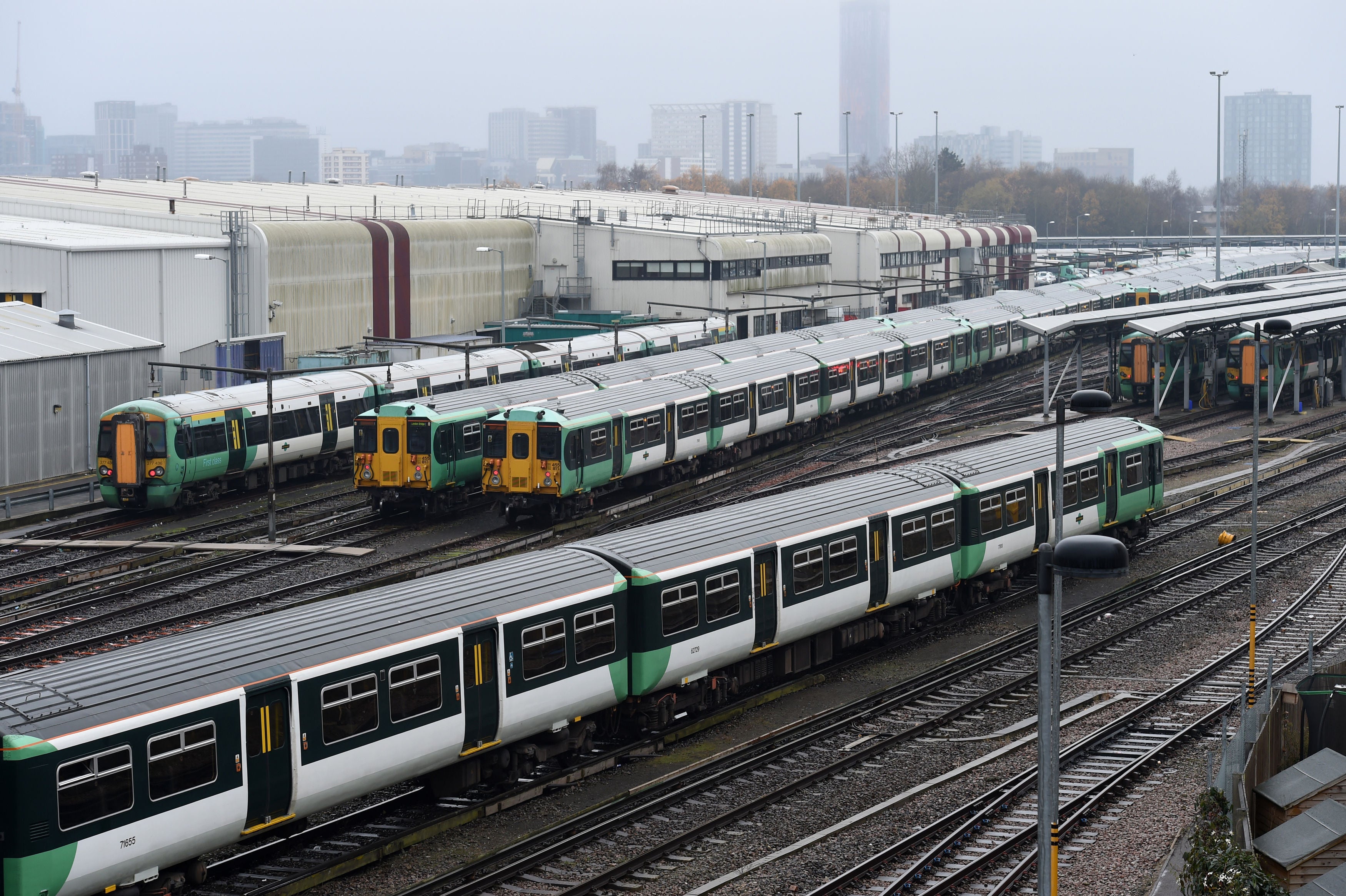Thousands more rail staff to be balloted over strike action
The TSSA has served notice to ballot more than 6,000 workers at Network Rail in a dispute over pay, conditions and job security.

Thousands more railway workers are to be balloted for strikes in escalating disputes which threaten travel chaos this summer.
The Transport Salaried Staffs Association (TSSA) has served notice to ballot more than 6,000 staff at Network Rail (NR) in a dispute over pay, conditions and job security.
Members of the Rail, Maritime and Transport (RMT) union at NR and 13 train operators are to strike for three days next week in similar disputes, which will cause huge disruption to services.
The RMT and Unite are also striking on London Underground on June 21, the same day as the first rail strike, in a separate row over jobs and pay.
The TSSA has previously announced strike ballots among its members at four rail companies – Avanti West Coast, CrossCountry, East Midlands and West Midlands Trains – while members of the drivers union Aslef are also striking later this month at Hull Trains, Greater Anglia and Croydon Tramlink.
TSSA members at NR work in operational, control, management and safety critical roles on rail services across Britain.
TSSA is demanding a guarantee of no compulsory redundancies for 2022, no unagreed changes to terms and conditions, and a pay increase which reflects the rising cost of living.
The union said NR staff last had a pay rise between two and three years ago (it varies between grades) and also worked throughout the coronavirus pandemic as key workers.
Members are being asked to cast two votes: one on strike action and another on action short of a strike.
The ballot opens on June 20 and closes on July 11.
In the event of a yes vote, strike action could be held from July 25.
Our members have had enough. We are preparing for all options, including co-ordinated strike action
TSSA general secretary Manuel Cortes said: “We could be seeing a summer of discontent across our railways if Network Rail don’t see sense and come to the table to face the concerns of their staff.
“Network Rail staff are asking for basic fair treatment – not to be sacked from their jobs, a fair pay rise in the face of a cost-of-living crisis and no race to the bottom on terms and conditions.
“Fat cat bosses have so far refused these completely reasonable requests, leaving us with no option other than to ballot for industrial action, something which is always a last resort.
“It’s frankly ridiculous that we’re being forced to ballot. Network Rail only responded to our requests for pay talks – made before Christmas – when we moved the issue to dispute in April and have dragged their heels at every stage.
“Our members have had enough. We are preparing for all options, including co-ordinated strike action.”
A Network Rail spokesman said: “Now is not for time for the TSSA to be jumping on the RMT ‘strike bandwagon’.
“Positive pay talks were in full swing with a ‘no-strings’ pay offer of 2.5% on the table, with the potential for more if connected to productivity and efficiency gains, so this news is both premature and deeply disappointing.”
It is hugely disappointing and premature that the TSSA is balloting for industrial action when talks have only just begun
A Department for Transport spokesman said: “Strikes should always be the last resort, not the first, so it is hugely disappointing and premature that the TSSA is balloting for industrial action when talks have only just begun.
“Taxpayers across the country contributed £16 billion, or £600 per household, to keep our railways running throughout the pandemic.
“The railway is still on financial life support, with passenger numbers 25% down and anything that drives away even more of them puts services and jobs at risk.
“Train travel for millions more people is now a choice, not a necessity. Strikes stop our customers choosing rail, and they might never return.
“We urge the TSSA to reconsider and come to industry talks, so we can find a solution that delivers for workers, passengers and taxpayers alike.”
Talks between NR and the TSSA will be held on Thursday in a bid to agree a pay deal.
NR said it remains committed to progressing talks with the union to implement reforms to management.
Sources said that, through natural attrition and uptake on voluntary severance, strong progress has been made on management modernisation to date.
Replying to a claim by Mr Cortes that Grant Shapps and others have instructed management at Network Rail to throw “endless pots of money“” at bribes aimed at attempting to break strikes, a DfT Spokesperson said: “This is wholly false. Government has made no such instruction and it’s wrong to imply as such.
“We encourage unions to call off these strikes and return to the negotiating table, there’s no doubt that the strikes next week will come at a massive cost to the country and to the railways – just when the railways are facing the biggest challenge in their 200-year history.”
Bookmark popover
Removed from bookmarks